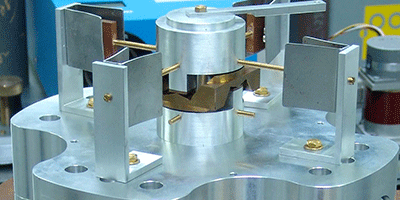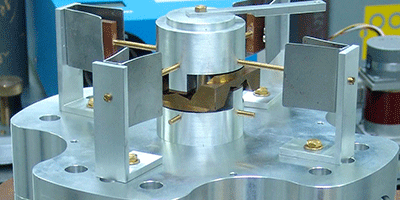An Uncertain Big G
Newton’s constant of gravitation, G, is a fundamental constant of nature that determines the gravitational force between two massive bodies. First measured over 200 years ago by Nevil Maskelyne, the precise value of G remains a moving target for modern experimentalists: Recent reports of the value of G vary by over 400 parts per million, 20 times greater than the uncertainty in any one measurement. To better understand this variation, Terry Quinn at the International Bureau of Weights and Measures, France, and colleagues looked for systematic errors in their own setup by rebuilding, from scratch, the apparatus they used to measure G twelve years ago and comparing the results.
Gravity is the weakest of the known forces, which makes measuring its effects on laboratory-sized objects difficult. To determine G, researchers use a device called a torsional balance, in which a suspended configuration of masses experiences a torque because of gravitational forces. However, one known problem in these experiments is temperature variation, which can cause certain components in the balance to expand or contract over the course of a measurement. Since the deflections being measured are small—about a hundredth of a degree—fluctuations can significantly affect the results.
Quinn et al.’s new experiment consists of a ribbon-suspended torsional balance that allows G to be measured in two independent ways: from angular deflection and from the electrostatic force needed to cancel out the effects of gravity. As reported in Physical Review Letters, the authors’ new value of G is 6.67545(18) x 10-11m3/(kgs2)—within the uncertainty of their first experiment, but significantly different from the values found by other groups. Why the discrepancy? Quinn et al. don’t know, but surmise it may come from unidentified experimental errors. – Katherine Thomas





